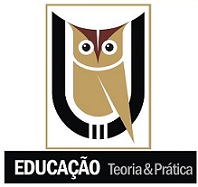Adoção de “Sistema Privado de Ensino”: análise de dois municípios paulistas
DOI:
https://doi.org/10.18675/1981-8106.vol23.n42.p35-53Keywords:
“sistemas privados de ensino”, padronização e autonomiaAbstract
Este artigo tem por objetivo analisar o processo de adoção do “sistema privado de ensino” em dois municípios paulistas, tendo em vista a autonomia pedagógica frente à padronização curricular. Nos estudos de dois casos intencionalmente selecionados utiliza-se a metodologia qualitativa constituída pela pesquisa documental e entrevistas semiestruturadas. Inicialmente, discute-se o cenário político nacional que contribuiu para a ampliação das parcerias entre esferas públicas e privadas no campo educacional. Na sequência, apresenta-se, brevemente, a caracterização e a experiência dos municípios no processo de municipalização e de aquisição do material didático, e por fim, discute-se a padronização curricular versus a autonomia pedagógica. Verifica-se que, por mais que, as Secretarias da Educação dos municípios analisado tenham contado com a participação de alguns professores na elaboração do material didático, a autonomia deles no projeto constitui-se numa autonomia regulada tanto pelas gestões públicas e quanto pelas instituições privadas.Downloads
Published
How to Cite
Issue
Section
License
Authors who publish in this journal agree to the following terms:
a) Authors assign copyright to the journal, with the work simultaneously licensed under the Creative Commons Attribution License that allows sharing of the work with acknowledgment of authorship and publication in this journal.
b) The policy adopted by the Editorial Committee is to assign copyright only after a period of 30 months from the date of publication of the article. After this time, authors interested in publishing the same text in another work must send a letter to the Editorial Committee requesting the release of the assignment of copyright and wait for a response.
c) This journal provides public access to all its content, since this allows greater visibility and reach of published articles and reviews. For more information on this approach, visit the Public Knowledge Project, a project that developed this system to improve the academic and public quality of research, by distributing OJS as well as other software to support the public access publication system to academic sources. The names and email addresses on this website will be used exclusively for the purposes of the journal and will not be available for other purposes. This journal provides open any other party  This work is licensed under a Creative Commons License
This work is licensed under a Creative Commons License











